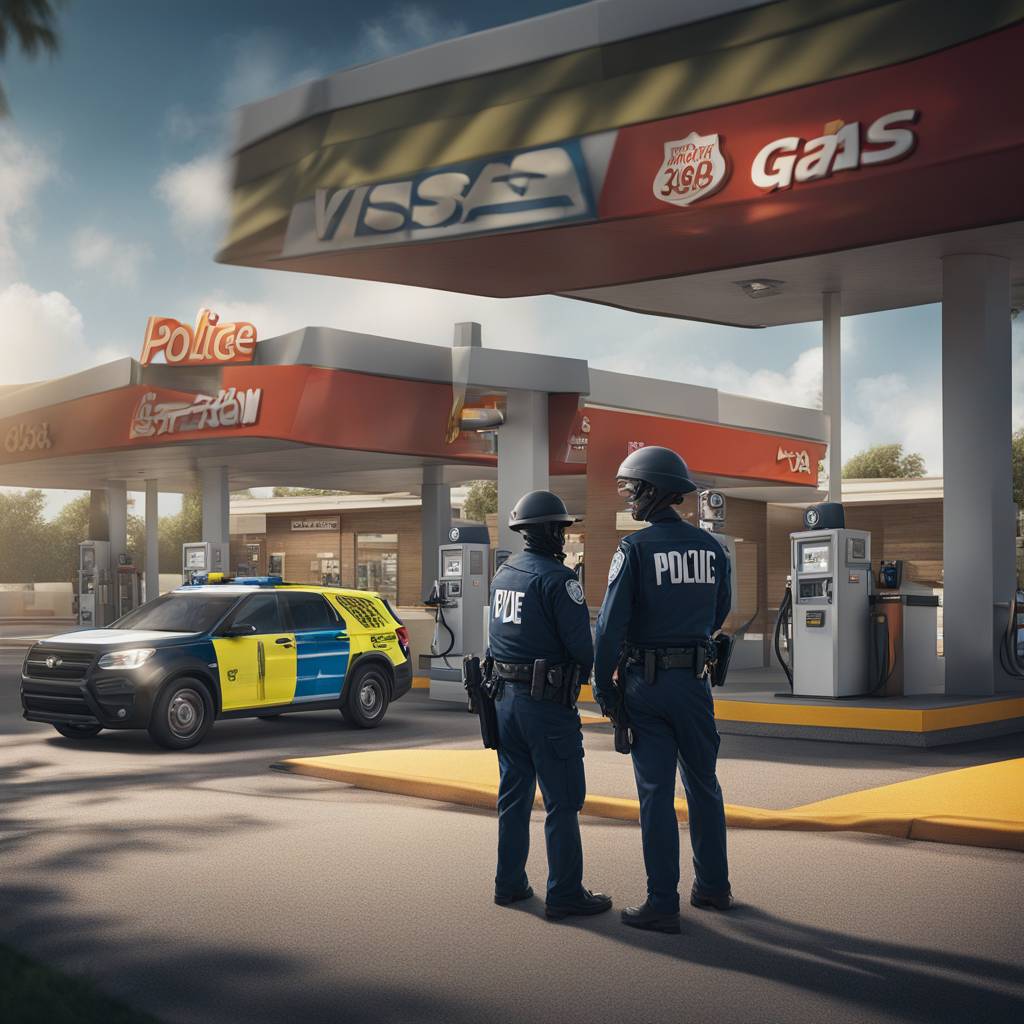The gas station robbery that occurred in January, resulting in the death of the robber, was revealed to be a premeditated scheme between the robber, 22-year-old Rasshauud Scott, and the victims, who were seeking temporary immigration status. Court documents indicated that Scott had coordinated the fake robbery with another man named William Winfrey, as evidenced by telegram messages between the two. The plan was for Scott to pretend to rob the victims, who would then file for U-Visas, reserved for victims of certain crimes who have suffered abuse and are helpful to law enforcement.
Scott and Winfrey had staged similar robberies dating back to 2023, with the most recent incident occurring the night before Scott was killed. On January 27, Scott pretended to rob two people at a gas station in Lockwood Drive, where a bystander, Jesus Vargas, shot and killed him. Vargas revealed to police that he fled the scene because he was violating his parole by being in possession of a gun. The details of the premeditated nature of the robbery shed new light on the motivations behind the crime and the complex relationships between the individuals involved.
Despite the revelation of the scheme, Scott’s fiancée Sade Beverly did not excuse his actions but instead highlighted what she believed to be the root cause of the incident – lax gun laws. Beverly expressed her belief that the laws surrounding firearms need to be changed to prevent similar situations from occurring in the future. She emphasized the importance of protecting human life and questioned how taking someone’s life could ever be considered acceptable, implying that stricter gun control measures could help prevent such tragedies from happening.
In an interview with ABC 13, one of the individuals involved in the gas station incident denied that the robbery had been staged but admitted to applying for a U-Visa after a few months. The conflicting accounts of the events further complicated the narrative surrounding the robbery and raised questions about the honesty and credibility of those involved. The ordeal underscored the challenges faced by law enforcement in investigating cases involving fabricated crimes and false accusations, as well as the potential consequences of such actions on the broader community.
The gas station robbery turned fatal highlighted the underlying issues of crime, immigration status, and gun control regulations in the community. The revelation of the robbery being an orchestrated scheme shed light on the desperation and deceit involved in attempting to secure temporary immigration status through fraudulent means. The tragic outcome of the robbery served as a stark reminder of the risks and consequences associated with engaging in criminal activities and the need for stricter enforcement of laws and regulations to prevent such incidents from occurring in the future.
The aftermath of the gas station incident prompted discussions about the ways in which individuals exploit loopholes and vulnerabilities within the system to achieve their personal goals, such as obtaining U-Visas through staged crimes. The event also raised broader questions about the societal issues that contribute to criminal behavior, including access to firearms, immigration policies, and the impact of crime on communities. Ultimately, the incident served as a cautionary tale about the complexities of crime, immigration, and gun control and the need for comprehensive strategies to address these interconnected challenges effectively.













